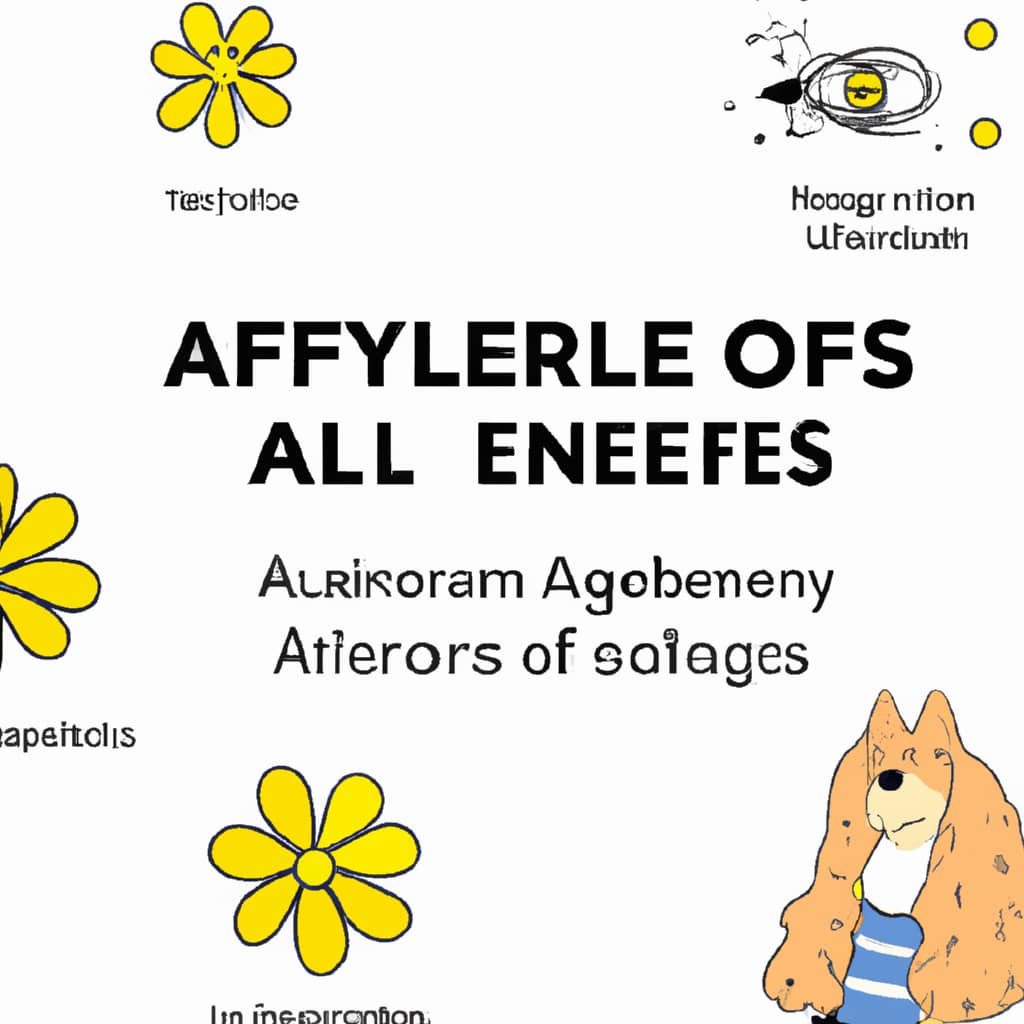Fading Puppy Syndrome: How To Help A Sick Newborn Puppy
If you’ve ever been fortunate enough to spend time with a newborn puppy, you know just how precious and delicate they are. However, sometimes these little bundles of joy can become sick, and that’s where you come in. In our article, “Fading Puppy Syndrome: How to Help a Sick Newborn Puppy,” we will explore the challenges faced by newborn puppies suffering from Fading Puppy Syndrome and provide you with valuable tips and advice on how to support them during this critical time. With your help, these tiny fighters will have a better chance at a healthy and happy life.

Understanding Fading Puppy Syndrome
Recognizing the signs of Fading Puppy Syndrome
Fading Puppy Syndrome is a heartbreaking condition that affects newborn puppies, causing them to have poor weight gain and a high mortality rate. As a responsible pet owner, it is crucial to be aware of the signs that indicate a puppy may be suffering from this syndrome. Look out for weak suckling reflex, lack of appetite, lethargy, difficulty in breathing, and a decrease in body temperature. Early detection plays a vital role in improving the chances of survival and providing the necessary care.
Understanding the causes of Fading Puppy Syndrome
While the exact cause of Fading Puppy Syndrome is not always clear, various factors can contribute to its onset. Inadequate nutrition, birth defects, infections, or maternal health issues can all undermine the puppy’s health and make them more susceptible to this condition. Understanding the potential causes can help pet owners take measures to prevent or mitigate the risks associated with Fading Puppy Syndrome.
How Fading Puppy Syndrome affects newborn puppies
Fading Puppy Syndrome can have a severe impact on the health of newborn puppies. Affected puppies may fail to thrive, have stunted growth, and struggle to develop properly. The syndrome weakens their immune system, making them more vulnerable to infections and diseases. If left untreated, it can lead to their untimely demise. Providing appropriate care during this critical period is crucial in giving the puppy the best chance for survival.
Creating the Right Environment
Maintaining a clean and warm space for the sick puppy
To create an optimal environment for a sick puppy, it is essential to keep their surroundings clean and warm. Make sure to clean the space regularly, removing any soiled bedding and sanitizing the area to prevent the spread of germs. Provide a warm and cozy spot for the puppy to rest, protecting them from drafts and keeping their body temperature stable. A clean and warm environment helps the puppy conserve energy and focus on recovery.
Providing adequate bedding and comfortable surroundings
Choosing the right bedding for a sick puppy is crucial for their comfort and well-being. Opt for soft and hypoallergenic materials that are gentle on their sensitive skin. Consider using bedding that provides extra cushioning to relieve any pressure points. Provide a quiet and peaceful area away from excessive noise and disturbances, as this will help reduce stress and promote a relaxed environment for the puppy to recover.
Keeping the environment quiet and stress-free
Newborn puppies with Fading Puppy Syndrome are particularly vulnerable to stress, so it is crucial to create a quiet and stress-free environment for their recovery. Minimize loud noises, sudden movements, and any other potential stressors that could hinder their progress. By keeping the environment calm, you can help the puppy conserve energy and focus on gaining strength and stability.
Feeding and Hydration
Assessing the puppy’s ability to nurse
It is essential to assess the puppy’s ability to nurse to determine the appropriate feeding method. Weak puppies may have difficulty latching onto the mother’s teats, resulting in inadequate milk intake. Check for signs such as weak suckling reflex, excessive weight loss, or an inability to compete for milk against littermates. If nursing proves challenging for the puppy, alternative feeding techniques will need to be implemented to ensure their nutrition and hydration needs are met.
Feeding techniques for weak and fading puppies
When hand-feeding weak and fading puppies, it is essential to choose suitable milk replacers that closely resemble the mother’s milk. Consult with a veterinarian to determine the best formula and feeding schedule for the puppy’s specific needs. Feed the puppy using a syringe or a bottle with a small, soft nipple, ensuring that the milk is warmed to an appropriate temperature. Feeding should be done slowly and patiently, allowing the puppy to consume proper amounts without feeling overwhelmed or stressed.
Intravenous hydration for severely affected puppies
In severe cases where the puppy is unable to ingest sufficient nutrition orally, intravenous hydration may be necessary. This involves delivering fluids directly into the puppy’s bloodstream through a vein, ensuring they receive the essential hydration they require. Intravenous hydration should only be administered by a trained veterinary professional, as it requires careful monitoring and sterile procedures to minimize the risk of complications.
Providing Supportive Care
Administering appropriate medications under veterinary guidance
When dealing with Fading Puppy Syndrome, it is crucial to consult a veterinarian who can provide guidance on appropriate medications to alleviate symptoms and promote recovery. Medications may include antibiotics to combat infections, supplements to support the immune system, or other medications targeting specific symptoms. It is essential to strictly follow the veterinarian’s instructions when administering medications to ensure the puppy’s safety and well-being.
Monitoring vital signs and seeking immediate veterinary help if necessary
Regular monitoring of a sick puppy’s vital signs is essential in gauging their progress and identifying potential complications. Pay close attention to their body temperature, heart rate, and respiratory rate. Any significant changes or concerning symptoms should be reported to a veterinarian promptly. Quick action is vital in ensuring the puppy receives the necessary medical attention to improve their chances of survival.
Providing gentle massage and stimulation to promote circulation and muscle strength
Gentle massage and stimulation can play a crucial role in promoting circulation and muscle strength in sick newborn puppies. Use gentle stroking and rubbing motions to stimulate their muscles and encourage blood flow. This can be especially useful when dealing with weak or underdeveloped puppies who may require assistance in developing their muscle tone. However, it is important to handle the puppy with care and consult a veterinarian for guidance on appropriate techniques.

Supplementing Nutrition
Choosing suitable milk replacers for hand-feeding
When hand-feeding sick puppies, it is essential to select milk replacers that closely resemble the mother’s milk in terms of nutritional composition. Commercially available formulas designed specifically for newborn puppies are a suitable option. However, always consult a veterinarian to ensure you are using the most appropriate formula for the puppy’s specific needs. The right milk replacer will provide essential nutrients and support their growth and development.
Ensuring proper nutrition through consistent feeding intervals
Consistency in feeding intervals is vital when hand-rearing sick puppies. Establish a feeding schedule in consultation with a veterinarian, taking into consideration the puppy’s age, size, and condition. Small, frequent feedings may be necessary to accommodate their weakened state and prevent overfeeding. Adhering to a consistent feeding routine promotes healthy digestion and ensures the puppy receives the necessary nutrition to support their recovery.
Introducing solid food gradually at the appropriate age
As the sick puppy grows and gains strength, gradually transitioning them to solid food becomes essential. Consult with a veterinarian to determine the appropriate time and type of puppy food to introduce. Start by mixing small amounts of moistened puppy food with the milk replacer, gradually increasing the proportion of solid food. This careful transition ensures the puppy’s digestive system can adapt and helps prevent any digestive discomfort during the weaning process.
Seeking Veterinary Assistance
Importance of consulting a veterinarian for Fading Puppy Syndrome
Seeking veterinary assistance is crucial when dealing with Fading Puppy Syndrome. Veterinarians possess the necessary knowledge and expertise to accurately diagnose the condition, recommend appropriate treatments, and provide guidance throughout the puppy’s recovery. Early intervention and regular veterinary check-ups help ensure the puppy receives the best possible care and increase their chances of survival.
Understanding the role of professional intervention in the puppy’s recovery
Professional intervention plays a vital role in the recovery of puppies with Fading Puppy Syndrome. Veterinarians will develop a personalized treatment plan based on the puppy’s specific needs and monitor their progress closely. Regular check-ups allow for adjustments in treatment as necessary and ensure any emerging health issues are addressed promptly. Veterinary professionals are equipped with the expertise and resources needed to provide the best possible care for the puppy.
Following prescribed treatment plans and attending regular check-ups
To maximize the chances of recovery and long-term health, it is crucial to diligently follow the prescribed treatment plans and attend all recommended check-ups. This may involve administering medications at specific intervals, providing appropriate care based on veterinary advice, and monitoring the puppy’s progress closely. By adhering to the treatment plan and attending regular check-ups, you are actively supporting the puppy’s recovery and ensuring their ongoing well-being.
Prevention and Care for the Mother Dog
Maintaining the mother’s health during pregnancy
To prevent Fading Puppy Syndrome, it is essential to maintain the mother dog’s health during pregnancy. Providing a balanced and nutritious diet, regular exercise, and appropriate veterinary care are essential. Pregnancy is a crucial time for the mother’s health, as it directly impacts the well-being of the developing puppies. By prioritizing the mother’s health, you can help minimize the risk of complications and improve the odds of healthy, thriving puppies.
Providing optimal nutrition and necessary vaccinations
Proper nutrition is vital for the mother dog during pregnancy and lactation to ensure she can provide adequate nutrition to her puppies. Consult with a veterinarian to determine the most suitable food and feeding plan for the mother dog during these critical periods. Additionally, ensuring the mother is up to date on necessary vaccinations helps protect her and the puppies from infectious diseases that can contribute to Fading Puppy Syndrome.
Regular veterinary check-ups and early detection of any health issues
Regular veterinary check-ups are essential for monitoring the mother dog’s health and detecting any potential health issues early on. Timely detection of any problems allows for prompt intervention, reducing the risk of complications that can impact the health of both the mother and her puppies. By staying proactive and attentive to the mother’s well-being, you can ensure the best possible outcome for all involved.
Support from Siblings and Littermates
Allowing supervised interaction to promote socialization
Siblings and littermates can play a crucial role in the recovery and well-being of a sick puppy. Allowing supervised interaction between the sick puppy and their healthy littermates promotes socialization and can improve their emotional well-being. However, ensure close supervision to prevent any rough play or accidental injury. Monitoring their interactions allows you to provide a safe and supportive environment for the sick puppy while allowing for social interaction with their siblings.
Encouraging gentle play and bonding experiences
Gentle play and bonding experiences with littermates can have a positive impact on a sick puppy’s overall well-being. Encourage gentle play sessions where the puppies can engage in non-threatening activities that promote physical movement and mental stimulation. These interactions contribute to the puppy’s emotional development and can help boost their resilience and recovery.
Separating infected puppies from healthy littermates if necessary
While it is beneficial for a sick puppy to have interaction with their healthy littermates, there may be instances where separation becomes necessary. If the sick puppy poses an infection risk to their littermates or is too weak to handle any disturbances, it might be best to separate them temporarily. Consult a veterinarian for guidance on the best course of action based on the specific circumstances.
Emotional Support and Mental Stimulation
Offering comfort and reassurance during challenging times
During a challenging period of Fading Puppy Syndrome, emotional support is crucial not just for the sick puppy, but also for the pet owner. Offer your sick puppy comfort and reassurance through gentle cuddles, soothing voices, and a warm presence. Your calm and reassuring demeanor can help alleviate stress and anxiety for the puppy, contributing to a more positive recovery experience.
Engaging in gentle play and positive interactions
Engaging in gentle play and positive interactions with the sick puppy can help boost their emotional well-being. Play sessions that involve soft toys, interactive games, and engaging activities create an environment of fun and stimulation. Keep in mind to tailor the intensity of play according to the puppy’s energy levels and overall health. Positive interactions not only provide mental stimulation but also strengthen the bond between you and the puppy.
Providing mental stimulation through appropriate toys and activities
Mental stimulation is important for a sick puppy’s overall well-being and can contribute to their recovery and development. Offer appropriate toys designed for puppies, such as puzzle toys or treat-dispensing toys that stimulate their cognitive abilities. These activities provide mental exercise, preventing boredom and enhancing their overall mental well-being. However, always supervise playtime to ensure the puppy’s safety and remove any toys that could pose a choking hazard.
Continued Monitoring and Post-Recovery Care
Regularly monitoring the puppy’s progress and development
Even after the puppy shows signs of recovery, continue to closely monitor their progress and development. Regularly assess their body weight, appetite, and overall behavior. Monitor their growth milestones and ensure they are meeting appropriate developmental targets for their age. By staying vigilant, you can identify any potential setbacks or issues early on and take appropriate action if necessary.
Vaccination schedules and preventive care for long-term health
Maintaining a proactive approach to the puppy’s long-term health is crucial. Consult with a veterinarian to establish a vaccination schedule tailored to the puppy’s specific needs and overall health. Vaccinations protect against various infectious diseases and help ensure the puppy has a strong immune system. Additionally, practicing preventive care, such as regular deworming and flea/tick control, contributes to the puppy’s overall well-being.
Maintaining a balanced and nutritious diet for optimal growth
A balanced and nutritious diet is essential for a sick puppy’s optimal growth and long-term health. Consult with a veterinarian to determine the most suitable feeding plan for the puppy’s specific needs. Ensure their diet contains the necessary nutrients for proper development and growth. Providing a consistently balanced and nutritious diet helps support their recovery and promotes their well-being throughout their life.
In conclusion, Fading Puppy Syndrome presents significant challenges, but with the right understanding, care, and support, there is hope for sick newborn puppies. By recognizing the signs, creating the right environment, administering proper feeding and hydration, providing supportive care, and seeking veterinary assistance, pet owners can play a crucial role in improving the chances of survival and promoting the long-term health of the puppy. Remember to prioritize the well-being of the mother dog, ensure support from siblings and littermates, offer emotional support and mental stimulation, and maintain continued monitoring and post-recovery care. With dedication, love, and the guidance of veterinary professionals, sick newborn puppies can have a fighting chance at a healthy and fulfilling life.













